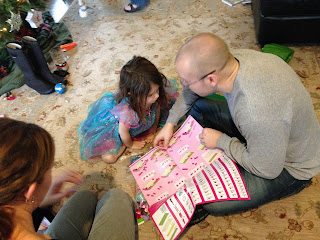 |
| "The bud may have a bitter taste, but sweet will be the flower" - William Cowper |
Over the summer, Daniel and I read a book on marriage by Timothy Keller called
The Meaning of Marriage. We both desire a marriage that reflects the great love Jesus Christ has for His people. One of my biggest takeaways from that book is the fact that Jesus is the example for both the role of the husband and the role of the wife. He demonstrates what servant leadership and loving sacrifice looks like (in relation to us) for the husband. And He shows us what humble and joyful submission looks like (in relation to the Father) for the wife. I absolutely love that, and think it is so empowering and encouraging as a new wife to see that the way Jesus relates to the Father is the pattern for how I am to relate to Daniel.
Anyway, that really doesn’t have anything to do with the subject of this post. That was just a little freebie.
One of the chapters in the book was on singleness. Keller quoted a woman, who was single but desired to be married, who said she learned that singleness was God’s current best for her. If it wasn’t, she’d be married. I agreed with her. That was my thinking while I was single (which was until I was 30 – almost 31): If God promises to withhold no good thing from those who follow Jesus (Psalm 84:11), then He was not withholding marriage from me. Therefore, singleness was God’s best for me until He deemed otherwise and sent me a husband. I still believe that to be true.
But Daniel challenged me on that statement (“This is God’s best for me”) by asking me about a situation we know about where a husband cheated on his wife before they got married and throughout their first year of marriage until he was exposed. They are now separated. So Daniel posed the question, “Is that God’s best for this young woman?” It’s a fair question. God obviously allowed the marriage to take place and knew about the affair the whole time. So was that His best for this woman who is a believer – one of His daughters?
That question haunted me all week. When talking with a friend and my sister who were struggling in different ways, I thought, "Is this God's best?" When reading the book of Judges in the Bible, I read about a man who believed in God but foolishly vowed to sacrifice whatever first came out of his house if God would give him victory in war (see Judges 11). God gave him the victory and when he returned, his beloved daughter ran out of the house to greet him. The man decided to keep his vow (a sin I believe) by sacrificing his daughter to God (the Bible says God would never require one to sacrifice their children to him – Deut. 18:10 and 2 Kings 17:17 for example). Was this God’s best for her? And what about my dad? A lot of what I believed about what has happened to be the past several years hung on the answer to this question. I didn’t want to live in a lie.
Thankfully, God met me in this question. He helped me to lean into Him instead of letting doubts drive me from Him (like in times past). He brought these truths to my mind from the Bible:
- When Joseph – a man who believed in God and had great character – was sold into slavery by his jealous brothers, and then was lied about and thrown into prison for a crime he didn’t commit, and then forgotten about by someone who promised to get him out of prison (none of these look like God’s best right?), he trusted God. After many years and a turn in events (all brought about by the hands of a sovereign God), he was released from prison and became one of the most powerful men in Egypt. Instead of seeking vengeance on all who had done him wrong, he realized God’s good purposes for him and for the nation of Israel. Joseph said that they all meant it for evil but God meant it for good (Genesis 50:20). God intended all that for good. It was best for Joseph (but not immediately) and for the nation of Israel, His people. And it was all for the glory of God.
- The Apostle Paul tells us that God works all things (including evil and unpleasant circumstances) to fit into a pattern for good for those who love Him and belong to Him (Romans 8:28).
- Psalm 119:68 reminds us that God is good and does good. Sometimes it might not look good to us at first, but He beckons us to trust Him and to remember His great promises (like the one in the previous point).
These are just a few of the verses that God brought to mind. But He also spoke to me from a couple of sermons. One being from John Piper called “
This Illness is for the Glory of God.” In it, he describes what love is:
“So what is love? What does it mean to be loved by Jesus? Love means giving us what we need most. And what we need most is not healing, but a full and endless experience of the glory of God. Love means giving us what will bring us the fullest and longest joy. And what is that? What will give you full and eternal joy? The answer of this text is clear: a revelation to your soul of the glory of God—seeing and admiring and marveling at and savoring the glory God in Jesus Christ. When someone is willing to die—or let your brother die—to give you (and your brother) that, he loves you.
Love is doing whatever you have to do to help people see and treasure the glory of God as their supreme joy—to help people see and be satisfied with the glory of God…
These are the two great purposes of all things: God’s demonstration of his glory in Christ, and human beings treasuring that glory above all things…God is doing more than you know.
So what is God’s best? The problem with that question is that it’s not the right question. God’s best is found in Revelation 21-22 when Jesus comes back to judge the earth, to rid it of evil, and to completely renew the earth and His people. There will be no more tears or pain or suffering or death. We will have perfect fellowship with Him forever.
That is God’s best. In the meantime, we see glimpses of God’s renewal but we also live in a world full of suffering and pain and death. The circumstances we are in themselves may not be God’s best. But God is still working for the good of His people and the fame of His name. He has good purposes in the horrible things we experience and suffer, and He allows them for a reason. The goal of these things is God’s best. And God’s best for us is Himself, and He will do and allow whatever means necessary – no matter how horrific or painful – to draw us to Him and make us more like Jesus Christ. That is what true love does: it does whatever is necessary to magnify Christ. And it does whatever will be ultimately best for the beloved. Like Piper said, “God is doing more than you know.”Let's lean into that and remind each other of that continually.




























































